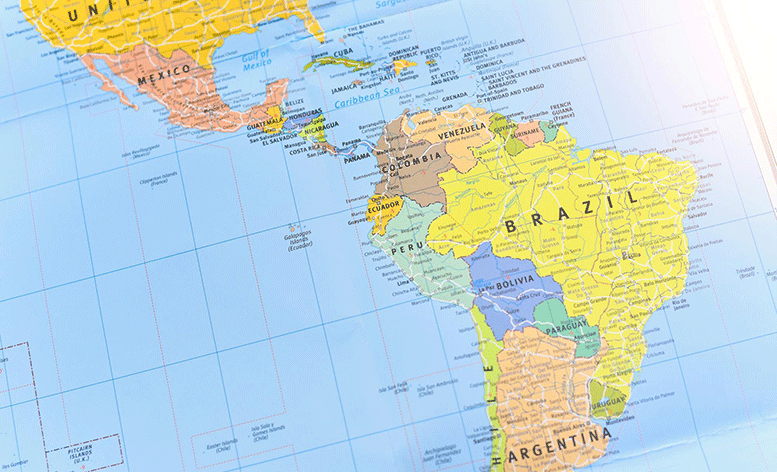A Brazilian court has agreed to rule on a case that would greenlight businesses and farmers to grow cannabis, but even with a positive outcome in the case, Brazil could still be years away from establishing a legal framework for the hemp industry.
The Superior Court of Justice (STJ), Brazil’s top appeals court, will rule on the case, in which DNA Solucoes em Biotecnologia is seeking to import cultivation seeds and plant industrial hemp. The court is expected to make a final ruling in the next 12 months.
While the case would set a legal precedent in Brazil, the country still needs specific laws and rules to guide the cannabis industries, said Lorenzo Rolim da Silva, President of the Latin American Industrial Hemp Association (LAIHA).
Raising questions
“Although seemingly very promising, this potential decision by the STJ leaves more questions than answers,” Rolim da Silva said. “It’s not clear how anything will unfold in the event that they decide positively.”
While a positive ruling for cannabis by the court is likely to draw lawmakers’ attention, it will not obligate them to do what the hemp industry really needs: Create clear laws and rules. In the absence of a regulatory system, the Ministry of Agriculture and ANVISA, the Brazilian health authority, have no way to guide the industry, according to da Silva.
“The decision cannot obligate them to actually create the law and regulations around growing cannabis. That is something that only the legislative power can do in Brazil,” he said.
Other similar cases over hemp licenses are pending in Brazilian courts. Da Silva said a ruling in favor of cannabis could spark even more such challenges.
“A positive decision would give a clear signal to any company or person in the country to simply start a legal case against the state and start growing their cannabis without any rules or regulations,” he said, noting “it remains to be seen if that would be positive or negative for the industry as a whole.”
Slow process
Brazilian legislators have repeatedly stalled progress on a comprehensive cannabis framework. The country’s legislative process for cannabis started in 2015 with an original bill that was later replaced with an updated proposal in 2020. Since then, little has happened.
“Congress is a little afraid to decide on the cannabis issue, as it is a controversial one,” attorney Arthur Arsuffi told Reuters. “So that has put off a decision and, given the number of lawsuits, the judiciary ends up having to settle the issue,” said Arsuffi, who is representing DNA Solucoes em Biotecnologia in the case.
Despite the ban on domestic hemp cultivation, Brazilian producers can import raw materials to make CBD, which is legal by prescription under the country’s medical cannabis law. Medical marijuana is also available to patients under that law.
Current rules under ANVISA already allow for the import and prescription-only sale of cannabis-derived medicines registered as pharmaceuticals, and those with “sanitary authorization” which don’t require clinical trials, under a regulation that entered into force in March 2020. That rule also provides for “compassionate use” authorization that lets patients import cannabis products on an individual basis.
CBD market primed
ANVISA has estimated that more than 100,000 Brazilians undergo some type of treatment with CBD – many obtaining products on the black market – and that 66,000 prescriptions for cannabis-based medicines, including CBD, are recorded annually. Brazil has several million epileptics and patients with other ailments like autism and chronic pain who could benefit from CBD. Under medicine subsidies in Brazil, the government offers generous support to patients.
Observers say the potential for medical cannabis could surge once laws are established, with estimates that the sector could reach turnover of $5 billion in the next three years. Several importers have already established beachheads in Brazil, including GW Pharmaceuticals of the UK, which sells its Sativex CBD-based medicine in pharmacies. Brazilian pharma company Prati-Donaduzzi is also authorized to manufacture and distribute certain cannabis products through drugstores.
The largest country in South America, Brazil is the fourth biggest pharmaceutical market in the world. GW Pharmaceuticals of the UK already sells its Sativex CBD-based epilepsy medicine in Brazilian pharmacies, and major pharma players have shown interest in Brazil’s potential in CBD.
Beyond CBD
Beyond CBD, the latest legislative proposal, introduced in 2020, would clear the way for products in health and beauty, cellulose, fibers, non-medical veterinary and food seed.
Brazil is the world’s fourth-largest farming country behind China, India and the United States, with the potential to grow hemp on a massive scale, opening opportunities for the production of grain and fiber.
With a market of 214 million consumers, overall lower costs of production, a strong food production track record, and a friendly climate for hemp, Brazil could become a major international competitor in the hemp-based sectors.
Brazil is also a leader in the global cellulose and paper industry, primarily an export market, but one in which hemp inputs can be expected to expand as demand for sustainable raw materials grows.
Read the full article here









